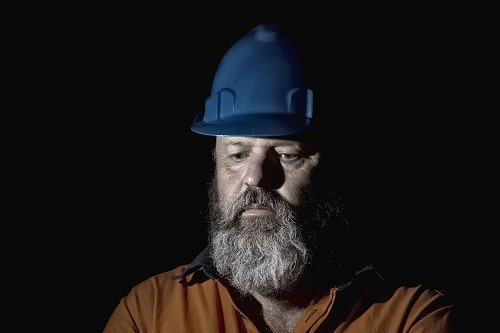As UK temperatures in June soared to their highest level this year and yellow heat health alerts were issued across much of the country, the TUC has warned of the dangers of hot workplaces and called for the introduction of a legal maximum temperature at work.
News
Too hot to work? TUC calls for legal maximum UK working temperature
The union wants to see the introduction of an absolute maximum indoor working temperature of 30C – or 27C for those doing strenuous jobs – beyond which work must stop. It is also calling for a change in the law that would require employers to try and reduce temperatures in the workplace if they exceed 24C and workers feel uncomfortable.
 The TUC is calling for the introduction of a maximum indoor working temperature of 30C for non-strenuous jobs. Photograph: iStock/CentralITAlliance
The TUC is calling for the introduction of a maximum indoor working temperature of 30C for non-strenuous jobs. Photograph: iStock/CentralITAlliance
“Extreme heat is becoming the norm and we’re struggling to cope,” said TUC general secretary Paul Nowak. “We need to adapt – and that means improving the law, investing in resilience and delivering climate action.”
There is no law in the UK for a maximum working temperature because every workplace is different, according to the Health and Safety Executive (HSE). The regulator states on its website that “no meaningful upper limit can be imposed because in many indoor workplaces, high temperatures are not seasonal but created by work activity, for example in bakeries or foundries”.
The Workplace (Health, Safety and Welfare) Regulations require employers to provide a “reasonable indoor temperature” in the workplace, but no specific limit is set. Similarly, the Construction (Design and Management) Regulations require “reasonable” workplace temperatures for indoor areas of construction sites. For outdoor construction workers, protection from adverse weather conditions must be provided, along with rest facilities.
The Labour party, which is leading the polls in the run-up to the UK General Election on 4 July, has indicated in its ‘New Deal for Working People’ that it will look at “modernising” guidance on extreme temperatures in the workplace.
The party said in the document: “Labour recognises that in a number of sectors working temperatures are regularly unacceptably high, including for those working in strenuous and sedentary jobs, causing serious health and safety concerns. Labour will commit to modernising health and safety guidance with reference to extreme temperatures, preventative action and steps to ensure safety at work.”
The TUC has welcomed this commitment, noting that it would “move Britain closer to standard practice in other countries like Spain and Germany that have maximum working temperatures enshrined in workers’ rights”.
The International Labour Organization (ILO) warned in April that more than 70 per cent of the global workforce would be affected by exposure to excessive heat at some point because of climate change. The UN body said that as climate change hazards evolve, “it may be necessary to re-evaluate existing legislation or create new regulations and guidance, to ensure that workers are properly protected”.
Earlier this year, the Environment Audit Committee warned in a report that as global temperatures continue to increase, heatwaves could claim up to 10,000 lives a year in the UK and cause work-related injuries to spike. The cross-party committee of MPs called on the Government to put in place a national heat resilience plan that prioritised “passive cooling” measures, such as installing external shutters on buildings, coating roofs with reflective white paint and expanding access to green space.
NEWS

Ramadan: what employers should know about supporting their workforce
By Belinda Liversedge on 18 February 2026
As Ramadan begins this week, UNISON has reminded employers to think about reasonable adjustments for their Muslim workforce’s religious observance such as fasting, prayers, and flexible schedules.

Nearly half of UK workers afraid to flag risks, finds new research
By Belinda Liversedge on 10 February 2026
A significant “silence gap” is threatening UK workplace safety and operational integrity, according to new data released by training provider Mental Health First Aid (MHFA) England.
Sexual misconduct in dentistry: former GDC fellow warns of ‘culture of silence’
By Belinda Liversedge on 05 February 2026
A former General Dental Council (GDC) clinical fellow is calling for a radical shift in how the dental sector manages workplace risk, warning that a “culture of silence” is masking the problem of sexual misconduct in the profession.



